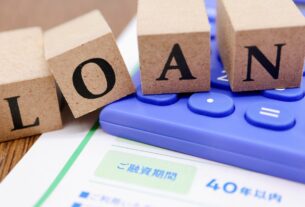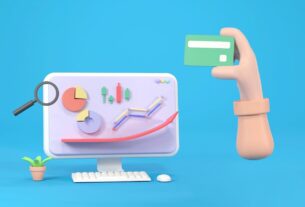In today’s fast-paced financial landscape, obtaining a loan can sometimes feel like a daunting task, especially for individuals with less-than-perfect credit scores. No credit check loans have emerged as a popular alternative, offering a lifeline to those who may have been denied by traditional lenders. However, while these loans can provide quick access to cash, they come with their own set of risks and considerations. This article delves into everything you need to know about no credit check loans, helping you make an informed decision before applying.
Understanding No Credit Check Loans
What Are No Credit Check Loans?
No credit check loans are financial products that allow borrowers to obtain funds without undergoing a traditional credit check. Instead of relying on credit scores, lenders may use alternative methods to assess a borrower’s creditworthiness, such as income verification, employment history, and bank statements. These loans are often associated with payday lenders, personal loan companies, and certain online lending platforms.
Types of No Credit Check Loans
- Payday Loans: These are short-term loans typically due on the borrower’s next payday. They usually come with high-interest rates and fees.
- Installment Loans: Unlike payday loans, installment loans allow borrowers to repay the loan in smaller, manageable payments over a specified period. They may still have high interest but offer a more structured repayment plan.
- Title Loans: These loans use the borrower’s vehicle as collateral. If the borrower defaults, the lender has the right to repossess the vehicle. Title loans can offer larger amounts but come with significant risks.
- Cash Advances: Credit card cash advances allow cardholders to withdraw cash against their credit limit. However, this often comes with higher interest rates and fees.
- Peer-to-Peer (P2P) Loans: Platforms that connect borrowers directly with individual lenders may offer no credit check options, relying instead on the borrower’s profile and income.
Pros and Cons of No Credit Check Loans
Pros
- Accessibility: No credit check loans are often easier to obtain, especially for individuals with poor credit history or no credit at all.
- Quick Approval: These loans usually have a fast approval process, allowing borrowers to access funds quickly in emergencies.
- Flexible Requirements: Many lenders consider alternative data, making it possible for individuals who may not qualify for traditional loans to get funding.
Cons
- High-Interest Rates: Many no credit check loans come with significantly higher interest rates compared to traditional loans, increasing the total repayment amount.
- Short Repayment Terms: Many of these loans are short-term, requiring borrowers to repay them quickly, which can lead to financial strain.
- Risk of Debt Cycle: Borrowers may fall into a cycle of debt by taking out additional loans to repay existing ones, especially with payday loans.
- Potential for Predatory Lending: Some lenders may take advantage of borrowers’ urgent need for cash, imposing excessive fees and terms that can be difficult to meet.
Factors to Consider Before Applying
1. Assess Your Financial Situation
Before applying for a no credit check loan, take a step back and assess your financial situation. Ask yourself the following questions:
- Do I really need this loan? Consider whether you can address your financial needs through other means, such as budgeting, savings, or borrowing from family or friends.
- Can I afford the repayment? Calculate your monthly expenses and determine whether you can realistically afford the additional loan payments.
2. Research Lenders
Not all lenders are created equal. It’s crucial to do thorough research before choosing a lender. Look for:
- Reputation: Check online reviews and ratings to gauge the lender’s reputation. Avoid lenders with numerous complaints or red flags.
- Transparency: A reputable lender will be upfront about their fees, interest rates, and repayment terms. Avoid lenders who are vague or refuse to provide clear information.
- Licensing: Ensure the lender is licensed to operate in your state. This can help protect you from predatory practices.
3. Compare Loan Options
Take the time to compare different loan options, including:
- Interest Rates: Look for the most competitive rates, but be cautious of exceptionally low rates that may come with hidden fees.
- Repayment Terms: Evaluate the length of time you’ll have to repay the loan and whether the terms align with your financial capabilities.
- Total Cost of the Loan: Calculate the total cost of borrowing, including principal, interest, and any additional fees.
4. Read the Fine Print
Before signing any agreement, carefully read the fine print. Pay attention to:
- Fees: Understand all associated fees, including origination fees, late fees, and prepayment penalties.
- Repayment Terms: Ensure you fully understand the repayment schedule and what happens if you miss a payment.
- Default Consequences: Familiarize yourself with the consequences of defaulting on the loan, such as potential legal action or negative impacts on your credit score.
Alternatives to No Credit Check Loans
If you’re unsure about taking out a no credit check loan, consider these alternatives:
1. Personal Loans from Credit Unions
Credit unions often offer personal loans with more favorable terms and lower interest rates compared to payday lenders. They may have flexible eligibility criteria and offer loans to individuals with less-than-perfect credit.
2. Secured Loans
If you own assets like a vehicle or savings account, you might consider a secured loan, where you use these assets as collateral. Secured loans typically have lower interest rates than unsecured loans.
3. Family and Friends
If possible, consider borrowing from family or friends. This can often come with lower or no interest rates and more flexible repayment terms.
4. Financial Assistance Programs
Research local financial assistance programs that may offer help for those in need. Nonprofit organizations and government programs can provide resources for emergency situations.
5. Credit Counseling
If you’re struggling with debt or financial management, consider seeking help from a credit counseling service. They can offer guidance and help you develop a plan to improve your financial situation.
Also Read: How to Get the Cheapest Car Insurance Quotes
Final Thoughts
No credit check loans can provide quick financial relief, but they come with significant risks and potential pitfalls. It’s essential to approach these loans with caution, fully understanding their terms and considering all available alternatives. By assessing your financial situation, researching lenders, and weighing the pros and cons, you can make an informed decision that aligns with your financial goals.
Remember, while no credit check loans may seem like a quick fix, they can lead to a cycle of debt if not managed carefully. Always consider long-term financial health over short-term solutions. If you find yourself in need of financial assistance, explore all your options, and choose the path that best supports your financial stability and well-being.
By taking the time to educate yourself about no credit check loans and exploring alternative options, you can navigate your financial challenges more effectively and make choices that support your long-term financial goals.




